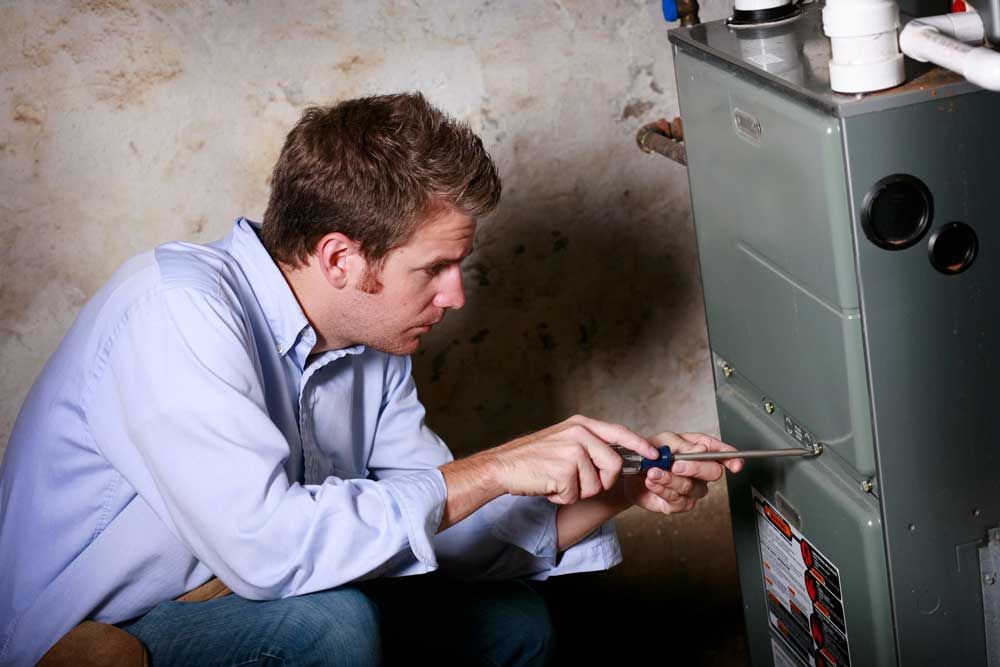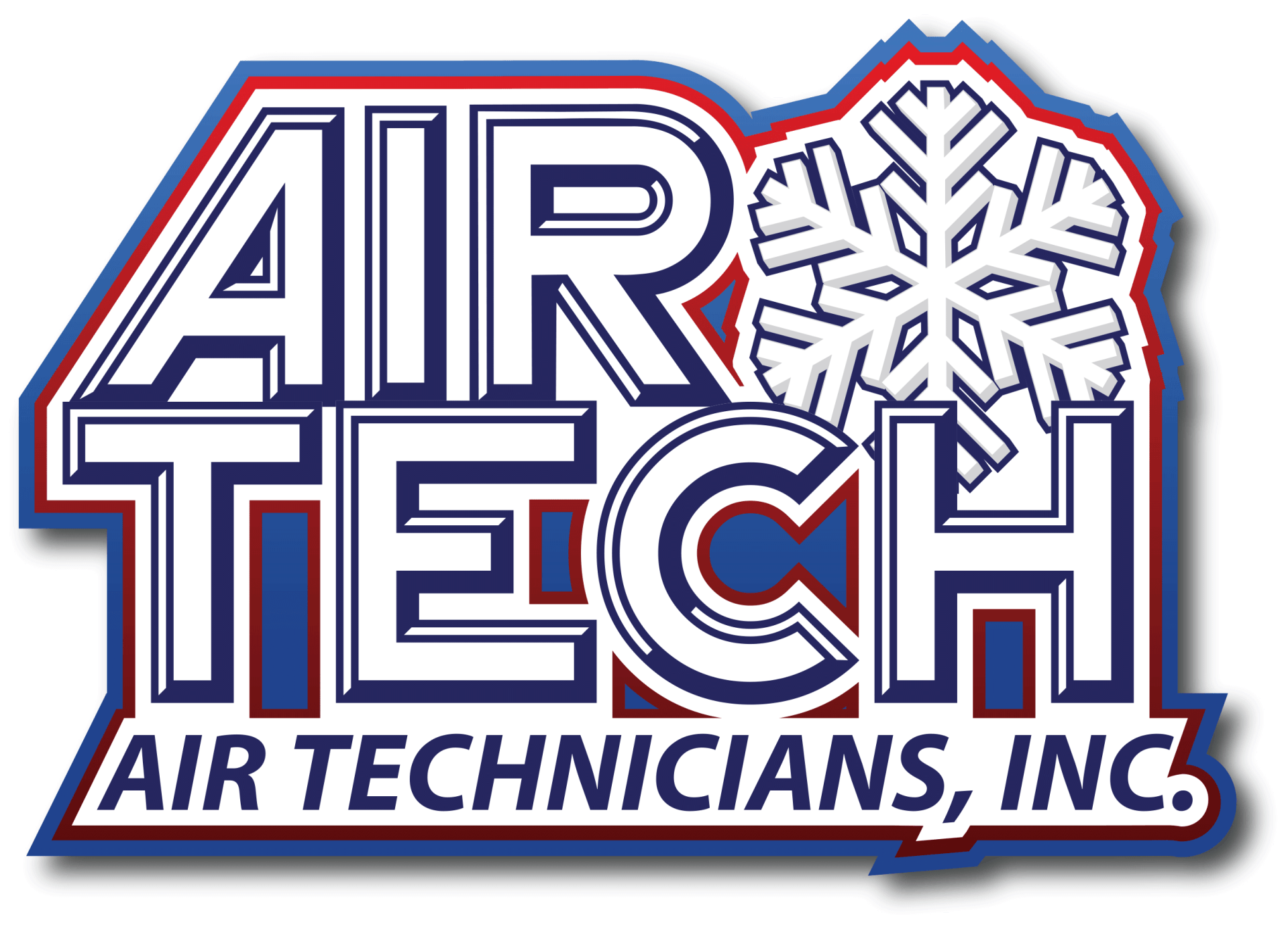Keep Your Home Warm All Winter Long
Whether you’re a homeowner or business owner, you need a heating system that works properly to ensure your warmth all winter long. Our experienced HVAC technicians at Air Tech AC & Electric have years of experience helping our customers with all their heating, furnace, and heat pump needs in Charlotte, FL. Call (941) 764-8324 to schedule a service!
Heating Services We Offer
Our experienced team can assist with all your heating repair, maintenance, and installation needs. We offer the following services:
- Installations
- Maintenance
- Inspections
- Replacements
- Repairs
- Tune ups
- Emergency repairs
- Central AC
- Energy efficiency heaters
- Smart thermostats
- Mini splits
- Furnaces
- Heat Pumps

Heating FAQ
-
Q: What is a heat pump?
A: A Heat Pump is an all-in-one heating and air conditioning system that works year-round to keep you comfortable. During warmer months, a heat pump works as a normal air conditioner. It extracts heat from inside the home and transfers it to the outdoor air. In colder weather, however, the process reverses—the unit collects heat from the outdoor air and transfers it inside your home.
Even when the air outside feels extremely cold, the air still contains some heat. The heat pump pulls the heat from this cold outdoor air and sends it inside to warm your home. When there’s not enough heat in the outside air to meet the demand of the thermostat setting, an electric heater supplements the outdoor air to warm the home. Extremely efficient, this process produces two to three times more heat than the energy it uses.
However, keep in mind, if you do not use much heat and you are thinking about replacing your system, a heat pump is more expensive to purchase up front and you will only receive a return on the heating portion of your investment when the system is in the heat mode. Additional electrical requirements may also come into play when switching to a straight cool/electric heat system.
-
Q: How do I know my heating system is working efficiently?
A: When you schedule your regular maintenance visit with a qualified heating technician, they will test your system to make sure it is running at optimal levels. But there are some ways you can determine whether or not your system is working efficiently on your own. Abnormally high heating bills are one of the indicators that your system is running at low efficiency levels, but keep in mind that how well your home is insulated and sealed and whether your filters are clean will also play a role in heating costs.
The refrigerants, widely recognized by the trademark “freon” (which is a registered trademark of the DuPont company for refrigerants), helps cool and dehumidify the inside air. In a “forced air” system, an internal blower circulates the conditioned air through ducts to the rooms where the cooler air is needed. The air ducts generally run either below the ceiling and inside the rooms (conditioned air) or in the attic (unconditioned air). An outside fan pulls air across the external parts of the system to cool and condense the refrigerant.
You can also tell by how warm your house stays throughout the winter. If some rooms are colder than others, or if you find that you are turning up the thermostat more often, your heating system may not be running very efficiently. Check your thermostat setting. Is your heating system achieving the desired temperature setting you are requesting on the thermostat? If not, call one of our HVAC professionals to inspect and test your heater.
-
Q: What are furnace ratings?
A: Furnaces are rated by the Annual Fuel Utilization Efficiency (AFUE) ratio, which is the percent of heat produced for every dollar of fuel consumed, or how efficiently a furnace converts gas into heating energy. Its AFUE rating is measured as a percentage.
Like the miles-per-gallon rating on your automobile, the higher the AFUE rating, the lower your fuel costs. An AFUE of 90% means that 90% of the energy in the fuel becomes heat for the home and the other 10% escapes up the chimney and elsewhere. According to the EPA- AFUE doesn’t include the heat losses of the duct system or piping, which can be as much as 35% of the energy for output of the furnace when ducts are located in the attic, garage, or other partially conditioned or unconditioned space. All furnaces manufactured today must meet at least 80% AFUE in the south and 90% AFUE in the North. If your furnace is 10 – 15 years old, it very well may fall below the current furnace minimum and waste energy- costing you money.
When shopping for high-efficiency furnaces and boilers, look for the ENERGY STAR® label. If you live in a cold climate, it usually makes sense to invest in the highest-efficiency system. In milder climates with lower annual heating costs, the extra investment required to go from 80% to 90% to 95% efficiency may be hard to justify.
This doesn’t mean that you should only select a furnace based on its AFUE rating. The efficiency rating is just one factor to consider when looking for a new furnace.
-
Q: What is two stage heating?
A: Two-stage heating means the furnace has two levels of heat output: high for cold winter days and low for milder days. Since the low setting is adequate to meet household heating demands 80% of the time, a two-stage unit runs for longer periods and provides more even heat distribution.
-
Q: When should I replace my heating system?
A: There are a few obvious signals that let you know when it’s time to upgrade your heating system. Frequent repairs, recent spikes in utility bills, and inconsistent temperatures in the home are a few warning signs that it’s time for a new heater. But if you’ve had the same heating system for twenty years or more, it would be a good idea to talk to an HVAC contractor about having it inspected to determine if it’s time for a heater replacement. Even if your old heater has worked without problems for years, a professional heating technician is trained to detect any possible operation or safety issues that are a direct indication that the system needs to be replaced. If you are concerned about your heating costs, you should talk to a heating professional about other options. Call us now to schedule your system’s check up!
-
Q: How do I know what type of heating system is right for me?
A: Hiring an HVAC contractor for professional advice is the best approach when you are in the market for a new heating system. Different types of heaters work better in some climates than others. Also, you would need to consider the available utility services in your area. Not all areas offer Natural gas or propane. Likewise, not all homes have sufficient electrical requirements to change from a heat pump to electric heat. Upon completion of a series of quick questions and a survey of your home or business, our Comfort Consultant can assist you in choosing a system that meets your heating needs. Give us a call and let’s get started!
-
Q: Will my new furnace work differently than my old one?
A: Furnace technology has advanced significantly in recent years. Modern furnaces are designed to provide more even and efficient heating than past furnaces, which can impact both how your system operates, sounds and what you notice about your system.
To better regulate temperatures and airflow, modern furnaces move more air over the heat exchanger than older furnaces. The air that comes out of your furnace registers may not seem as warm as the air from your old furnace, but overall airflow is improved. Better airflow means higher comfort.
Also, new furnaces are designed to integrate with high-efficiency air conditioners, so furnace blowers are more powerful to accommodate add-on cooling. Since cold air is much heavier than warm air, your system needs an extra boost from the blower to deliver cool air throughout your home. If you have an older home, this performance boost could produce unfamiliar sounds because air duct systems were originally designed for heating only. To minimize sound levels, choose a variable speed product which automatically changes speeds to meet the airflow needs of both heating and cooling cycles.
-
Q: How often do I need to change my furnace filter?
A: Check the documentation that came with your furnace. Recommendations vary based on a number of factors: the type of filter that you use, how many pets you have, whether anyone in your home has allergies, etc. If you use disposable fiberglass panel or electrostatic panel filters, you should change them anywhere from once a month to once every three months. Pleated filters generally last from 3 months to 6 months, again, always check your filter monthly, no matter what type filter you use. Filters are relatively inexpensive and easy to change, so there is little reason to wait. If you don’t change or clean your filter often enough the filter can get clogged with dust and other airborne particles, forcing your furnace to work harder to maintain airflow. This will reduce your furnace’s efficiency and can cause damage.
Phone: 941-764-8324 | Email: airtechacandelectric@gmail.com
#CAC1816406 | #EC13006654
Business Hours
- Mon - Fri
- -
- Sat - Sun
- Closed
Emergency Hours: Mon-Fri 5 PM – 10 PM, Sat-Sun: 7 AM – 10 PM








